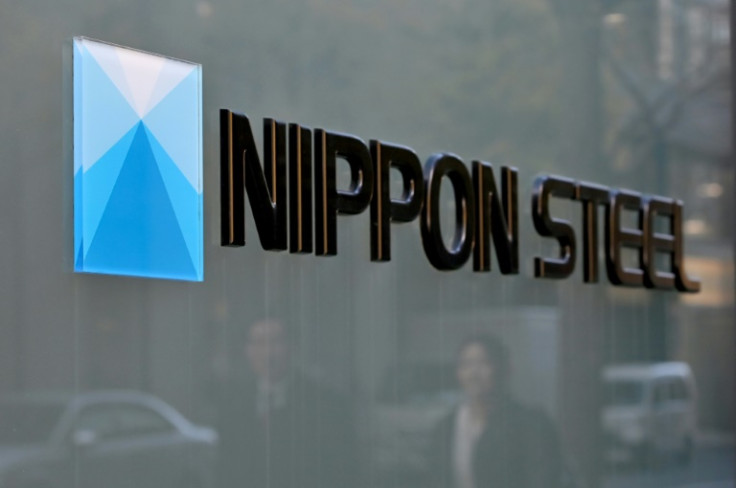US Steel, Nippon Steel Seek US Security Review Of Takeover Deal

US Steel Corp and its potential buyer Nippon Steel of Japan are requesting a federal review of their proposed deal following congressional criticism that the transaction threatens US national security, US Steel said Thursday.
The companies asked the Committee on Foreign Investment in the United States -- an interagency body established to review foreign takeovers of US companies -- to evaluate Nippon's $14.1 billion takeover of Pittsburgh-based US Steel.
"We look forward to a successful review," said a statement from US Steel's press office.
"Japan is an important ally to the United States," US Steel said. "This is a strongly positive development for American steel, American jobs and America's national security."
In unveiling the transaction on Monday, the companies depicted the deal as a marriage of the holders of top industry technologies that would boost steel output and accelerate efforts towards decarbonization.
The combined company also vowed to honor contract agreements between US Steel and the United Steelworkers (USW) union.
Still, the USW ripped the proposed deal as reflective of a "greedy, shortsighted attitude" of US Steel, which dates to 1901, and questioned the ability of Nippon to honor contracts.
The transaction also drew bipartisan howls on Capitol Hill, with Pennsylvania Democratic Senator John Fetterman calling the deal "absolutely outrageous," adding that "steel is always about security as well."
Ohio Senator JD Vance and two other Republicans asked Treasury Secretary Janet Yellen, who chairs CFIUS, to block the deal, calling domestic steel production "vital to US national security."
A spokesperson for the Treasury Department declined comment.
CFIUS is required to complete a review of a transaction within 45 days. The committee can then launch an investigation of up to another 45 days.
The committee can then approve the transaction, require mitigation steps to address national security concerns or refer the transaction to the president if it determines the deal should be blocked.
© Copyright AFP 2025. All rights reserved.





















